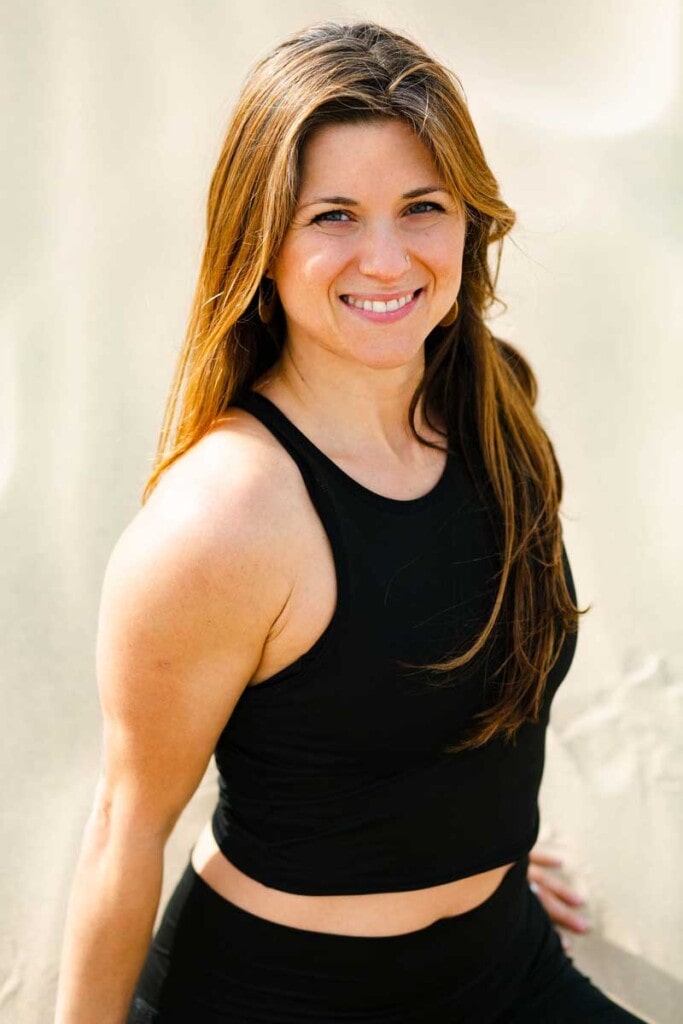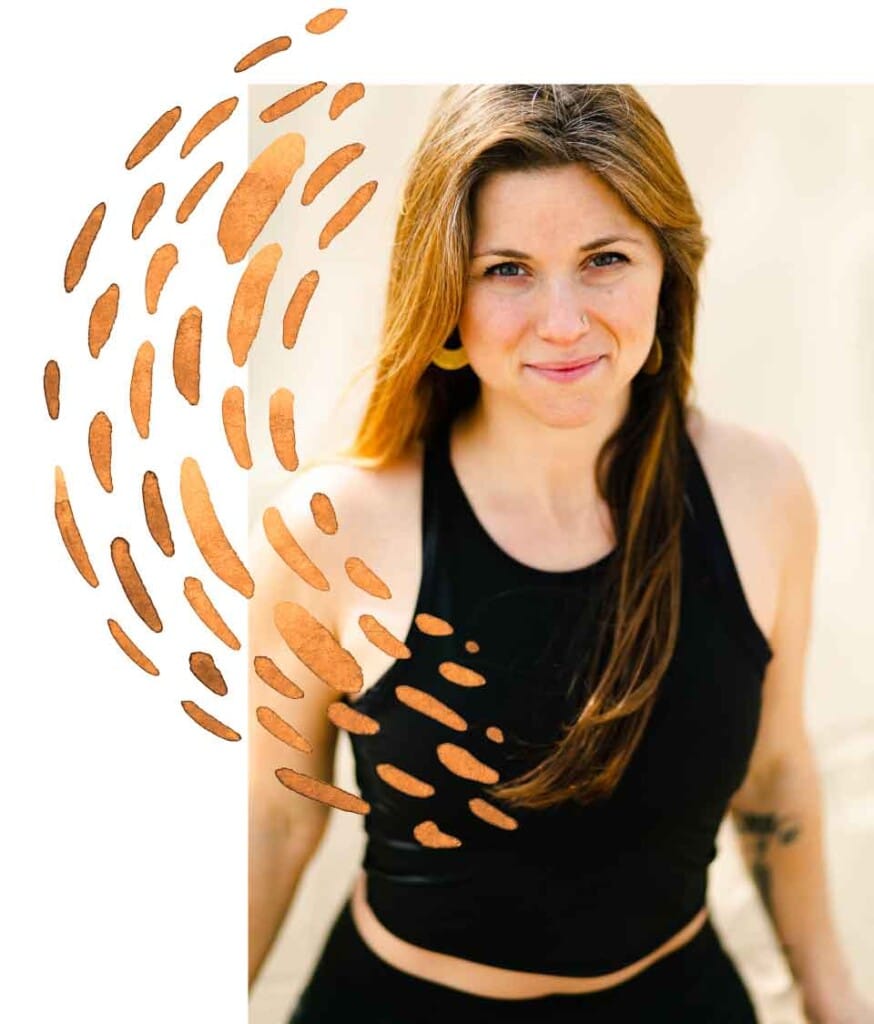
"I offer you depth and actualization"
Yoga Is A 'Practice' To Enhance The Way You Experience Life. Āyurveda Provides You The Tools To Negotiate Your Day-To-Day Choices.
I was 14 when I started practicing and studying Yoga. Later on, I began studying Ayurveda and taking Ayurveda and Yoga courses. At that point, I had completed five trainings and received five certificates. I was told I was ready.
Yet instead, the generic way I received the teachings left me frustrated, lacking confidence….and frankly, feeling like a fraud.
I wasn’t seeing results. And, I wasn’t understanding what the point of this work was.
So I went on a long and wild journey around the world, with both Yoga and Āyurveda, to find the classically based practices that are truly supportive, nourishing, and effective.

A yogavāhi is any substance that catalyzes the potency with whatever it engages. Though it can stimulate change, the ability to transform is inherent in the subjects it supports.
Once You Know The Purpose Of A 'Practice' There Is Freedom In No Longer Being Bound Blindly To Dogma
I clearly remember completing my first 200-hour yoga teacher training and still wondering about the purpose of these asana sequences and postural concepts. I also wondered where the teachers were gathering this information. They rarely shared source texts.
I often felt like we were doing very….slow dancing. The sequences were creative and fun. I felt balanced, calm, strong, and integrated at the end, but I didn’t understand why they were working.
Over the many years of work and study, I have found that the effect of practicing Yoga and Āyurveda without knowing the purpose or understanding of how these systems work leads to confusion, injury, and pain.
My approach to Yoga and Āyurveda today is Classical because Classical teachings have purpose.
True freedom comes from knowing and actualizing the purpose of what you are doing.
In every Yogavahi class, lecture, and 1-1 session, I always focus on the (WHY of action), which is called the Artha.


My Goal Is To Contextualize Things Often Taught In Broad Strokes So You Can Go Deep Instead Of Only Wide
By 2015, I had gone to four Āyurveda schools, each telling me that I was ready to practice.
When I got into an Āyurvedic Wellness practice and started working with actual people instead of theoretical ones, none of them matched this concept of Vata-Pitta-Kapha Prakriti, which was constantly discussed.
For example, I worked with a woman who was overweight, had intense fatigue constantly, and experienced body pain that was worse in the morning.
The school I had gone to at the time said that everyone should always eat breakfast and that weight gain was always an issue of Kapha Dosha. When I treated her this way, her symptoms got worse.
It was not until I began school at the Arogya Center and was introduced to the Classical Āyurvedic Texts – which explicitly say these issues are a cause of Vata and Ama (undigested food-stuffs) and need to be treated in a particular way – that I learned NOT to apply the generic broad strokes of my previous schools.
When You Are Aware Of Context Your Work Is More Personalized, Profound, and Impactful For The People You Work With - And In Deeper Service To Them
When I journeyed to study in India with the Vaidyas, the doctors at the Āyurvedic Ashrams, they couldn’t even communicate with me in the beginning because we didn’t share the language of Āyurveda.
Even though I had already been studying Āyurveda systematically for three and a half years up to that point.
It became really clear to me there that there’s so many of us walking around with half-baked information that isn’t working – whether in a Yoga paradigm or an Āyurveda paradigm.
If it does not work for us then it doesn’t work for the clients that we see. Some of you may almost feel like quitting yoga because “it is not working”.
If you also feel like you have to decorate your practice with outfits, music, or inspirational quotes because the practice itself does not feel full enough, you are not alone.
Many yoga teachers lack the right training to understand the depth of the practice and cover it with distractions.
The best way to support transformation in yourself and your clients is to look deeply into the original intentions of the systems in which you work – namely, Yoga and Āyurveda.
When I allowed my practice and work to become more simple, I began to pay attention to details and nuance. I became fluent in the subtle.
Yoga and Āyurveda do not work unless you come to them from their sources. When you do, your experiences and realizations will be rich and long-lasting.
Students and clients will find you reliable and trustworthy because you will no longer be applying blanket concepts on to them, but rather you will aid them in experiencing Yoga and Āyurveda as the subtle and specific paths that they are.


My intention is to allow the teachings coming through me to catalyze the potency and wisdom already within you.
This is the meaning of Yogavāhi. It is a substance that brings out the inherent power of whatever it is paired with.
I am passionate about providing you with the foundational teachings that all of these years of study and collection have fallen in my lap.
So that you can walk away feeling like you know how to make decisions, you know how to apply yoga, you know how to apply Āyurveda and so you also know how to work them together in a way that is truly supportive, nourishing, and effective.
Sarra raised the standard of quality that I expect when I enter a yoga space.
Amber Black
I have experienced teacher training, workshops, courses, and countless studio classes led by Sarra since she moved to my area several years ago. I have to say that she has raised the standard of quality that I expect when I enter a yoga space. Her teaching style encourages deep inquiry and curiosity, and her classes are challenging in ways beyond mere asana. She seems always to be simultaneously sitting in the seat of student and teacher and encourages those of us who are teachers ourselves to do the same.

No other person combines and teaches Yoga and Āyurveda this way!
If you're ready to take your health, practice and teachings to the next level,
START by getting the guidebook today...
Sarra's Bio
I began my journey to Ayurveda through Yoga, which I began practicing as a teenager. Eventually, I meandered into a Yoga Teacher Training at Sankalpah Yoga in NYC out of a craving for deeper study. I graduated from that program in 2009 and immediately began to teach.
From there, my curiosity grew. In order to feed the hunger for more knowledge and depth of understanding, I mostly lived internationally teaching yoga and running yoga trainings. Amidst the travel, I would stop in India and Thailand often to study.
I discovered Ayurveda in 2012 on one of those trips to India. When I returned home, I immediately enrolled in my first Ayurveda school in NYC. After completing this program, I felt like I needed more education before delving into practice. Thus, I went to the California College of Ayurveda and completed their 2 year practitioner program.
I traveled to India once I graduated from CCA and studied a few times at an Ayurvedic Ashram (Pooththottam under Vaidya Ravi), which revealed I needed more Classical education. In 2017, I traveled to NM to do a summer training with Dr. Lad at the Ayurvedic Institute and discovered my current teacher, Kashyapa Fisher at Arogya Ayurveda who specialized in Classical Ayurvedic teaching and practice. I actively studied with him from 2017 until 2021, completing his Ayurvedic Doctor/Vaidya program.
After this, I assisted him in the next few trainings he ran. In the midst of this, I studied several times with Andrey Lappa of Universal Yoga, eventually completing a 300h YTT with him in 2016.